Brito On the Soul and Other Medieval Things

Interview by Richard Matshall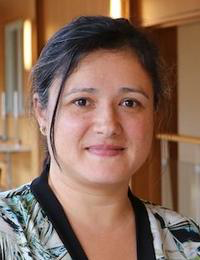
'I find no good reason to think that philosophers today do philosophy better than philosophers 600 or 2000 years ago, or that someone who decides to tackle metaphysical or epistemological questions in dialogue with, say, Quine is going to fare any better than those who prefer to do it in dialogue with Aristotle or Aquinas.'
'Brito sided most definitely with Aquinas, and thus held that the soul is the form of the animate body, that is, the soul is whatever makes a living thing be alive in its specific way of being alive. If we approach this in an Aristotelian way, that is, using the matter/form dichotomy (hylomorphism is as much a tool of analysis as it is a metaphysical position), we can analyse any animate being as a compound of matter and form, where the body corresponds to the matter and the soul corresponds to the form.'
'The doctrine of the modi significandi intends to make grammar a discipline about the real world by placing its ultimate principles out there, specifically in the modes of being ( modi essendi ) of things. So, for instance, the grammatical division of words (noun, adjective, pronoun, verb, etc.) follows from the distinct ways in which things may exist (e.g., as second substance, as quality, as first substance, as action, etc.), which are ways that happen in reality.'

Ana Maria Mora Marquez specializes in Logic and Analytic Philosophy. Here she discusses Simon Faversham, medieval logic, signification and quiddities, the medieval mind/body/soul debate, essence and being, Radulphus Brito, grammar and logic and reality, his epistemic logic, his approach to the soul, Aristotle on the rational soul, truth, the importance of Aristotle’s fallacy of equivocation, and whether medieval logic is still relevant.
3:16: What made you become a philosopher?
Ana Maria Mora Marquez: I started university in 1994 studying industrial engineering. In 1995 there was a political scandal in Colombia, which drew students to the streets; I was one of them. During one of these manifestations, I met a group of people with a strong interest in philosophy. I became good friends with some of them and eventually their philosophy bug bit me, which led me, first, to start reading philosophy on my own, and then to abandon engineering and switch to a philosophy major. To be true, I never found the very concrete concerns of engineering very motivating, and I quickly became fascinated with philosophy’s power to make me see in different ways things I had never even questioned. It’s fascinating that 25 years after philosophy is still effectively challenging my understanding of the world.
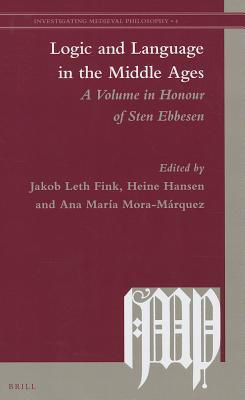
3:16: You’re interested in all things medievally philosophic and have been working recently on Aristotle’s De Anima which of course was very important to medieval philosophy. Before looking at that let’s look at a couple of figures from this period who you’ve written about who might be less familiar to non-specialists. Simon Faversham was a thirteenth century scholar who also looked at Aristotle’s logic and natural philosophy. So firstly, what were the assumptions regarding logic that he worked with at the time and that informed his work?
AM: Simon of Faversham shared with some of his contemporaries and predecessors an understanding of logic as a discipline that teaches how to gain knowledge of what is unknown from what is better known. Logic for them is, then, the foremost tool for knowledge production and dissemination.
3:16: And what was interesting about his approach, in particular can you say something about how for him logic even though a theoretical science was grounded in the properties of things? And did he think rhetoric and poetics to be part of logic – was this unusual and how could they be?
AM: Logic teaches us to classify the world and draw inferences about it by means of natural language, which for him cuts the world at some real joints. So, logic does not provide us with a discursive structure completely disconnected from the way the world is, but rather with a discursive structure that meets the world at some essential joints. In a sense it would be fair to say that our logical structures are partly determined by the structure of the external world. Regarding rhetoric and poetics, Simon is peculiar in the 13th century (also Giles of Rome) in that he adopts the ‘Arabic’ Organon , that is, Aristotle’s Organon, which in the Arabic Aristotelian tradition included, not only Categories, De interpretatione, Prior and Posterior Analytics, Topics and Sophistical Refutations, but also Rhetoric and Poetics.
How can rhetoric and poetics be part of logic? If one understands logic as a tool for the production and dissemination of knowledge, then rhetorical and poetical arguments can be helpful tools for the production and dissemination of certain types of knowledge, for instance the singular knowledge that Callias could not have stolen that horse because he is an honest man and honest people don’t steal, or that Alcibiades is strong because he resembles a lion. So, rhetoric and poetics also produce and transmit knowledge through argument.
3:16: Where did he stand on the medieval discussion regarding whether words signified thoughts or things? (And what’s a quiddity?) and similarly, did he think truth was a property of a thought or a thing, again, another medieval discussion of importance? And how did he handle empty references? Why was the debate over signification so important at the end of the thirteenth century – you have a new perspective on the origin of all this don’t you?
AM: On the medieval debate about the direct signification of words, Simon opts for the direct signification of things. So, for him, ‘horse’ signifies the quiddity of horse, that is, whatever being-a-horse amounts to, which includes its being an animal plus the distinctive feature that separates horses from other animals. The debate on the direct signification of words was, first, of exegetical importance. In other words, it was important for professional interpreters of ancient and late-ancient linguistic works since they had to deal with a number of contradictory claims in the foremost authorities of the period, that is, Aristotle, Boethius and Priscian. But the thirteenth-century consolidation of Aristotelian logic as an instrumental discipline for knowledge production and dissemination made Aristotle’s position, as transmitted by Boethius, untenable and hence the debate turned into a philosophical one, which resulted in the unanimous shift towards a direct signification of things in the last quarter of the century.
Truth, on the other hand, was for Simon primarily a state of a human soul that thinks the world the way it is. In other words, when we entertain the thought that horses are animals our soul is in a state of truth by virtue of having a thought that corresponds with the world (or a part thereof). The truth of utterances is only derivative from that psychological state of truth. However, contrary to, for instance, Radulphus Brito, for Simon an essential predication as ‘a horse is an animal’ is true even when no horse exists, because essential predication is not concerned with existence and hence need not be made true by things out there.
3:16: What were his views about the mind/body relation – and which philosophers did he draw on regarding this alongside Aristotle? And when he and medieval philosophers talk about the soul are they talking about something distinct from the mind or not?
AM: For most medieval philosophers the soul is something different from what we call today the mind (which, if I’m right, we attribute only to whatever has thinking and consciousness) quite simply because the soul for them is the equivalent of Aristotle’s psychê, that is, whatever enables the vital operations of animate bodies (nutrition, perception, thinking, etc.), among which we find, not only humans, but also plants and animals.In the 13th century, some decades before Simon’s time, there was a discussion on whether the soul is the perfection or the substantial form of the human body. For Albert the Great it could not be the substantial form in the same way as the soul of a horse is its substantial form, because this would make it impossible to account for the Christian idea of a separation of the human soul after the body’s death. So, according to Albert, for non-human living things the soul is the substantial form of the body, but for humans the soul is the perfection of a body, previously informed by an unachieved form, which receives their perfecting form, intellect, from outside. For Thomas Aquinas the human soul – the principle of the defining operation of humans (i.e. reasoning) – must be intrinsic to the human, so it is necessarily a substantial form.
So, to answer the first question, Simon seems unaware of this earlier debate and puts forward a position according to which the human soul is both the form and the perfection of the human body. This position is not incoherent in itself, for a substantial form is also the perfection of the being of which it is a form; it simply ignores the debate between intrinsic form and extrinsic perfection, which was well known at the time.
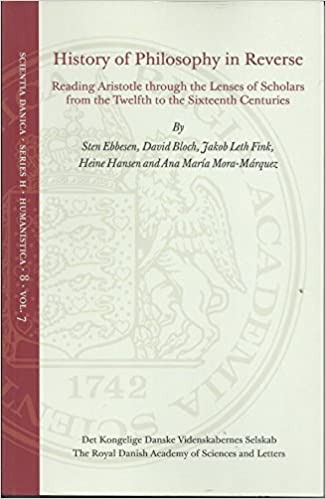
3:16: Discussions of universals and essences were also big topics for the medievals, wasn’t it – where did Simon stand on these issues – did he hold that there was a distinction between being and essence or were they the same for him?
AM: They were big indeed, as they were central topics in Aristotelian philosophy. No, for Simon, who in this follows Avicenna, essence and being are different, since the essence of a thing does not include existence, or being, in its formulation. For instance, when we think of what a human is, we do not include any particular kind of existence, mental, external, etc., in our thought. That’s why medieval scholars who follow Avicenna on this matter hold that the mode of existence is a concomitant accident of essence and not a part of it.
3:16: Radulphus Brito was another thirteenth century philosopher you're interested in. He was based in Paris and grammar was of special importance to his work wasn’t it? So what made grammar a science for Brito and what was of philosophical interest about this?
AM: Grammar was important for him first and foremost because it was a crucial part of the academic program of the Faculty of Arts at the University of Paris of the 13th century. But also because he lived at a time during which the grammatical doctrine of the modes of signifying (modi significandi), of which he is a proponent, was reaching its pinnacle, so he lived during a central period of the history of Western linguistics. The doctrine of the modi significandi intends to make grammar a discipline about the real world by placing its ultimate principles out there, specifically in the modes of being ( modi essendi ) of things. So, for instance, the grammatical division of words (noun, adjective, pronoun, verb, etc.) follows from the distinct ways in which things may exist (e.g., as second substance, as quality, as first substance, as action, etc.), which are ways that happen in reality. The same procedure is applied to other aspects of grammar, such as syntax. Grammar is, then, ultimately grounded in reality and hence can aspire to be a medieval science proper.
The philosophical interest, in my opinion, lies in the insight this approach to grammar gives us into the philosophy and epistemology of science of the medieval period, about which we have very little direct information. Moreover, 13 th century grammar is fundamental for our understanding of the development of logic in the same period since grammar is pre-supposed by the logical theories of our authors.
3:16: His approach to logic was interesting too – you say that his logic of intentions is the most developed account given in the thirteenth century. So can you sketch for us what his account was?
AM: It’s what I find most fascinating in his philosophical work. Brito puts forward an epistemic logic, the immediate aim of which is to be a scientific method. Take, for instance, a horse. According to this logic, we can epistemically approach that horse in many different ways, which are ultimately grounded in the many things that the horse is or can be: as an animate being in psychology; a mobile being in physics; and within any given science, as a specific kind of animal, as something that can exist in several instances, etc. In very broad lines, then, the logic of intentions (an intentio is an epistemic approach) aims to understand what different epistemic approaches to things there can be and how these different approaches can be combined with each other so as to produce new scientific knowledge and so as to make it transmittable to others in a way that preserves its relevant logical and semantic properties. This logic takes elements not only from Aristotle, but also from Avicenna and Averroes, and Stoicism and neo-Platonism via Boethius. It is, in my opinion, one of the most sophisticated logics (and theories of science) put forward in the late medieval period.
3:16: How did he approach Aristotle’s De Anima? What was a soul according to him and how did this relate to the body? What has hylomorphism to do with the relation between body and soul – and how does the soul/body distinction link with the mind if mind is distinct?
AM: Brito sided most definitely with Aquinas, and thus held that the soul is the form of the animate body, that is, the soul is whatever makes a living thing be alive in its specific way of being alive. If we approach this in an Aristotelian way, that is, using the matter/form dichotomy (hylomorphism is as much a tool of analysis as it is a metaphysical position), we can analyse any animate being as a compound of matter and form, where the body corresponds to the matter and the soul corresponds to the form. Take some human: whatever makes that human be that specific animate body is her human soul, and the rest is her body. Note that medieval Aristotelians understood everything through hylomorphism, even language. Finally, in medieval Aristotelianism there isn’t really a place for ‘mind’ as we understand it today, their discussions being rather focused on the notion of ‘anima’, the Latin equivalent of Aristotle’s psychê. However, in theological scholarship, which is strongly influenced by Augustine, there is talk of both ‘anima’ and ‘mens’, the latter having an evident etymological relation with ‘mind’. It is possible that Augustine’s mens is closer to our ‘mind’, but I have not myself assessed the extent to which the comparison holds.
3:16: Does he think there’s a distinction between essence and Being – and what did he think the relation of being was with substance and accident?
AM: Brito basically held the same Avicennian position as Simon: essence and being are different. What is peculiar about Brito is that for him accidents have being in a proper sense of the world, and not just in an analogical sense derived from substance’s being, or in an equivocal sense with respect to substance’s being. In other words, when we say that whiteness exists in Socrates, we are not using existence in a different sense than when we say that Socrates, a first substance, exists, even though the existence of whiteness is certainly dependent on the existence of Socrates (or of some other appropriate bearer). In this, Brito departs from the analogy-position of Aquinas and Simon of Faversham, among others, and anticipates Scotus’ univocity of being.
3:16: What was his stance regarding ethics, happiness and freewill?
AM: This is not my field of expertise, but I can say very summarily that i) happiness is for him the knowledge of God that can result from sustained theoretical life; and ii) that responsible free actions have their origin in the intellect rather than in the faculty of will (this in opposition to volontarists as Henry of Ghent).
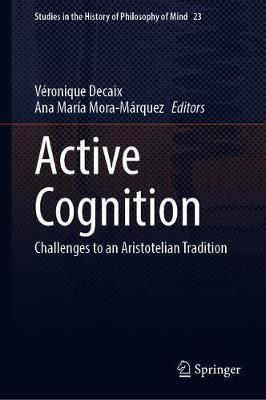
3:16: Turning to your work examining Aristotle, you’ve written about this rational soul we find in De Anima. Can you sketch for us what you take to be the best way of understanding Aristotle’s views on body and soul, on what that soul is – and what’s singular intellection?
AM: The soul, in general, is the principle of the organic and cognitive operations that differentiate animate bodies from non animate bodies. The problem lies rather in the metaphysics of the intellect, nous, and there I find that the textual support in Aristotle for positing a metaphysical separation of nous – an intellect that is metaphysically separated from the human and united with us in some way – is not very strong.
I find it more simple, and elegant, to understand the intellect as the distinctive cognitive capacity of humans, the principle of which is the human soul. This is the uniquely human capacity (for Aristotle, that is) to grasp universals. In later Aristotelian traditions emerges, then, the question about the possibility of intellectually grasping singular things, for instance, Socrates as Socrates, and not as human, white or some other instantiation of a universal. 13th -century Aristotelians rightly rejected this possibility as non-Aristotelian, but the discussion led to the development, in the 14th century, of cognitive theories that allowed a direct intellectual grasp of singulars, such as the one we find in John Buridan.
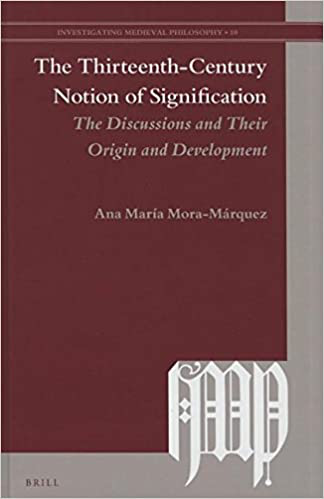
3:16: You’ve argued that from reading the first chapter of the Treaty de Interpretatione and the third book book of De Anima medievals constructed a unified notion of truth. Can you say how this works – and was this the first time such a view of truth had been possible?
AM: Just as in the case of the 13th -century discussion on signification, and that on singular intellection, there was a discussion on truth that emerged from apparently contradictory claims in the Aristotelian corpus, and that provoked a philosophical debate leading to the construction of a properly medieval notion of truth. This is why the so often neglected discussions in 13th -century commentaries on Aristotle’s works are crucial to understand what are philosophy and science in the late medieval period; how did medieval authors became more of a philosopher and less of an exegete; and how typically medieval philosophical and scientific concepts emerge in the unique intellectual context of the medieval university.
The notion according to which truth is the psychological state of humans who think the world (or a part thereof) as it is emerges over time in this unique scholastic context that has Aristotelian and Christian exegeses at the centre.
3:16: What was the importance of Aristotle’s fallacy of equivocation to thirteenth century philosophers?
AM: Medieval scholars are very interested in understanding how language works, because language, as I have mentioned, is the foremost tool for the production and transmission of knowledge. The fallacious arguments that rely on ambiguity, which is a very common linguistic phenomenon, are a hindrance to these aims, so it is very important to develop ways to tackle ambiguity. This includes learning what it is, what are its types, and learning to recognise it in argumentative contexts so as to be able to ask for disambiguation (distinctio). This skill is a central part of the medieval dialectical method.
3:16: As a take home then, are there important things that contemporary debates can still use from this Aristotelian metaphysics, epistemology and logic or has it all been supplanted by more powerful explanations of the phenomena needing explanation?
AM: Good question: yes, there are. Most likely the phenomena that have now more powerful explanations are those we can now observe better because of better modern observation tools. That excludes precisely metaphysics and language and logic, the objects of which are not observable in the same way that, say, viruses and exoplanets are. Epistemology is a bit more complex because modern science has indeed supplanted many old explanations on some aspects of knowledge, but with explanations that are not philosophical. However, the social epistemology that has been developing in the last decades, for instance, has a historical precursor in ancient and medieval philosophy at which it would be worth taking a closer look.
Also, it seems to me that metaphysicians then and now don’t lead substantially different discussions (except for the format), so contemporary debates could find good ideas in the old ones, I’m sure. Finally, the kind of logic one develops is affected by the use one intends to give to it, and ancient and medieval logics were well suited to the ancient and medieval scientific needs on which they were dependent. I find it fascinating to try to understand how philosophers approached logic and language before the specific needs of the 20th century, a lot of them linked to the development of computational technology. Ancient and medieval logic and philosophy of language have given me perspective and a good case to support my view that the way we think about language, logic, and knowledge is very much dependent on the social context where we are situated. I find no good reason to think that philosophers today do philosophy better than philosophers 600 or 2000 years ago, or that someone who decides to tackle metaphysical or epistemological questions in dialogue with, say, Quine is going to fare any better than those who prefer to do it in dialogue with Aristotle or Aquinas. But, of course, people have preferences, which is perfectly fine.
3:16: As an optional extra, I include a survey requiring one word answers (unless you want to expand on a point) – skip it if not interested!
AM: Cool! I’ll only reply the ones where I have some sort of stance.
A priori knowledge: yes or no? No
Abstract objects: Platonism or nominalism? Nominalism
Aesthetic value: objective or subjective?
Subjective Analytic-synthetic distinction: yes or no? Not a significant one
Epistemic justification: internalism or externalism? Externalism
External world: idealism, skepticism, or non-skeptical realism? Non-skeptical realism
Free will: compatibilism, libertarianism, or no free will? Pass
God: theism or atheism? Atheism
Knowledge claims: contextualism, relativism, or invariantism? Contextualism
Knowledge: empiricism or rationalism? Empiricism
Laws of nature: Humean or non-Humean? Humean, I think
Logic: classical or non-classical? Depends on what you need it for
Mental content: internalism or externalism? Externalism
Meta-ethics: moral realism or moral anti-realism? I guess anti-realism with some qualifications Metaphilosophy: naturalism or non-naturalism? Non-naturalism; however, philosophy can, perhaps must, make good use of the results of natural science
Mind: physicalism or non-physicalism? Physicalism
Moral judgment: cognitivism or non-cognitivism? Pass
Moral motivation: internalism or externalism? Pass
Newcomb's problem: one box or two boxes?Two boxes
Normative ethics: deontology, consequentialism, or virtue ethics? Pass
Perceptual experience: disjunctivism, qualia theory, representationalism, or sense-datum theory? Some sort of disjunctivism
Personal identity: biological view, psychological view, or further-fact view? Some sort of biological view, I guess
Politics: communitarianism, egalitarianism, or libertarianism? Pass
Proper names: Fregean or Millian? Neither nor.
Science: scientific realism or scientific anti-realism? Mild realism
Teletransporter (new matter): survival or death? Death; although I find the problem itself very confusing Time: A-theory or B-theory? B, last time I thought about this
Trolley problem (five straight ahead, one on side track, turn requires switching, what ought one do?): switch or don't switch? I would need more information about the situation
Truth: correspondence, deflationary, or epistemic? Epistemic
Zombies: inconceivable, conceivable but not metaphysically possible, or metaphysically possible? Metaphysically possible
3:16: And finally, are there five books you could recommend to the curious reader here at 3:16 that will take us further into your philosophical world?
AM: I’ll go for four books I have read in the past five years that have made a lasting, good, impression, but, first,
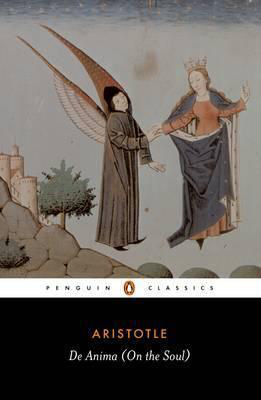
the best book in my library: Aristotle’s On the Soul.
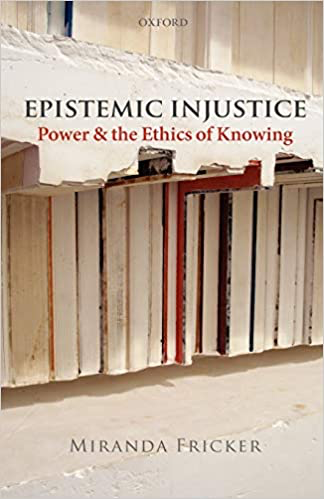
Miranda Fricker’s Epistemic Injustice
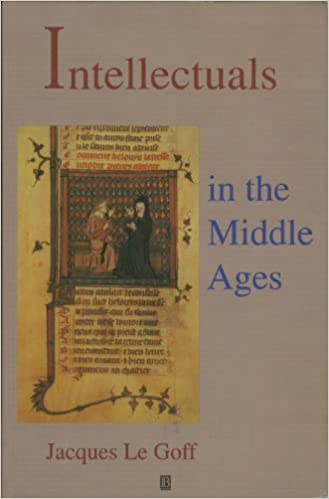
Jacques Le Goff’s Intellectuals in the Middle Ages
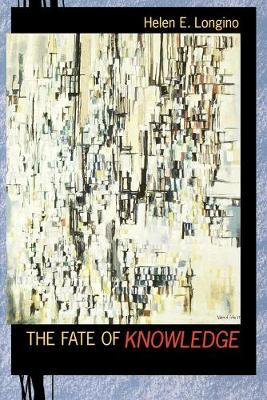
Helen Longino’s The Fate of Knowledge
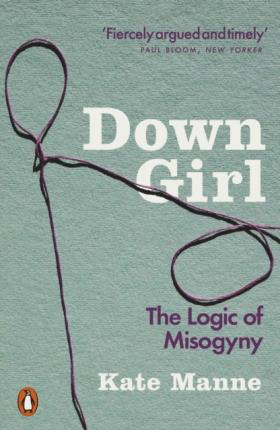
Kate Manne’s Down Girl

ABOUT THE INTERVIEWER
Richard Marshall is biding his time.
Buy his second book here or his first book here to keep him biding!
End Times Series: the index of interviewees
End Time series: the themes
Huw Price's Flickering Shadows series.
NEW: Steven DeLay's Finding meaning series
NEW: Joseph Mitterer's Beyond Philosophy serialised weekly